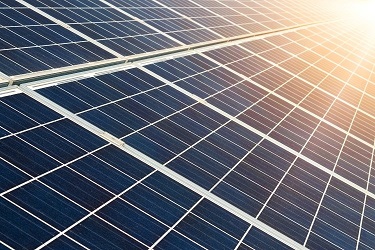One of Wisconsin’s first large-scale solar farms has been delayed as a result of the coronavirus pandemic.
Wisconsin Public Service and Madison Gas and Electric notified regulators Monday that the first phase of Badger Hollow — a 300-megawatt solar farm in Iowa County — will not be completed until April 2021, four months later than originally planned.
The project, which will be one of the largest solar farms in the nation, is expected to draw about 200 workers from across the country. The utilities say that won’t be possible with current business and travel restrictions designed to slow the spread of the virus. In addition, they say there may not be enough housing and other resources to support the workers right now.
The utilities expect the project cost will not exceed the $389.7 million approved last year by the PSC. The budget includes the 150-megawatt Two Creeks solar farm, which is under construction between Manitowoc and Kewaunee and scheduled to come online in December.
Spokespeople for WPS and the Two Creeks developer said that project has not been delayed by the health emergency.
The pandemic is expected to affect more than a third of all U.S. power plants expected to come online in the next six months, according to the Energy Information Administration, which projects 4,900 megawatts of utility-scale generation will be canceled or indefinitely postponed while overall electricity sales are expected to fall by 3% in 2020.
The slowdown is expected to affect wind, solar and natural gas projects, though EIA economist Tyler Hodge said the agency does not have information on specific projects and there is “a great deal of uncertainty” around the coronavirus impact.
The one natural gas generation plant under construction in Wisconsin, Alliant Energy’s 650-megawatt West Riverside Energy Center in Beloit, was scheduled to begin commercial operation in December.
The $700 million project suffered a setback late last fall when unfiltered water was accidentally used during final cleaning of the pipes that capture heat from the main turbines. According to Alliant’s report to regulators, that required removal of several hundred pounds of debris and another cleanout as well as a revised air pollution permit for testing.
Alliant spokesman Scott Reigstad said with construction essentially done there were no significant impacts resulting from the coronavirus. Reigstad said the turbines are being tested now and “if all continues to go well” the plant could be supplying electricity by the end of April.
Alliant said it did not expect the delay to result in cost overruns.






